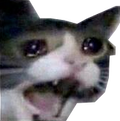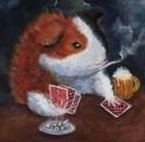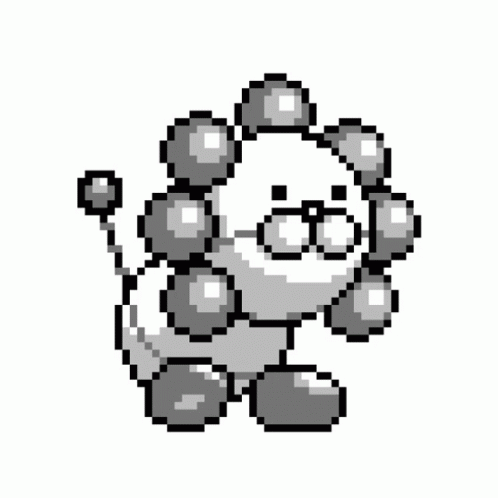For some reason the tag post didn't work last time and the thread didn't get stickied. I want to get this going again, and rather than agonizing over the perfect wording of a new chapter post, I want to re-post this one and see if we can't get a spotlight on it this time.
WHERE TO GET THE BOOK: http://libgen.is/book/index.php?md5=F6B31A8DAFD6BD39A5986833E66293E6
PRIOR THREADS:
So again, been a minute. I've been dealing with a lot of shit, and kept putting this off because I really didn't want to half-ass it. So I guess I'm using three quarters of my ass here.
In chapter 4, Dr. Price goes over the various flawed ways masked autistics keep themselves going just to function, and how incredibly debilitating the effects of all this are. Namely substance abuse, eating disorders, detachment/disassociation, adherence to rigid belief systems, and fawning/people-pleasing. I've experienced all of these to some degree or another myself, and have been working extremely hard to find my way out of the dark forest. I keep bumping into trees (social problems).
Anyway, Dr Price talks about how booze and weed are seen as gateways to social acceptance since it makes you more relaxed and people expect "goofy" behavior out of the inebriated. Eating disorders allow us to be focused on being thin and pretty, or else just burying our feelings under a mountain of junk food, or binging and purging -- anything to seize some control. Detachment/disassociation allow us to function, technically, even when internally we just have to shut down and carry on with what we're doing. Rigid belief systems? Very good way to easily sort out "good" and "bad" things and people. Fawning? Something every socially successful autistic person has fallen back on at some point as reflexive self-defense, but also a strategy people lean into to be liked (but not respected).
The reasons for these behaviors are pretty plain to see, as is the damage they do to us. This one resonated with me a lot; I'll have to take some time to write out my thoughts in full later on, but I wanted to get this one posted because I've been putting it off long enough. Discussion questions:
- As usual, any passages or quotes that really stick out to you? Anything confusing or enlightening?
- What flawed coping strategies have you used to get through life? What has it cost you?
- Are you still struggling with any of these? Are you starting to realize you're struggling and just didn't notice the specific way yet?
Tag post to follow, my own thoughts later on.
Hey y'all! It's been a long time, glad this thread has been revived (thank you @FourteenEyes@hexbear.net ).
I have gone through the process of getting diagnosed since the last post. Turns out I have ASD! Thank you for giving me the tools to go through this process.
I think my breaking point for getting diagnosed was when I felt like my coping strategies weren't working anymore. I felt like I had to get some help because things were not sustainable as they were.
I've used endurance sports in order to numb/quiet all my emotions, my anxiety and my body. I've had moments where I've had panic attacks because I did too much while not letting my body recover. I felt like if I'd stop I'd have too much time to ruminate on negative thoughts. It used up all my time and I did that alone, so I didn't see or talk to anyone for weeks. It was horrible (but looked socially acceptable). I've used fawning in my past relationships, which burnt me out emotionally, it took so much out of me in the long run.
I'm trying to heal now and to have healthier coping strategies (and to lessen the need for coping). With sports, I've learned to let go, to listen to my body a bit better and to find other people like me in order to make things more social. It's been a long process. As for fawning, I'm definitely still struggling : it's literally my job to help people do their tasks. I am now at a point where I can do everything and can help entire teams of people. I feel like I am putting too much on my shoulders and it takes a toll on me. In my personal life, I am trying to put boundaries, to learn what I like and to find my "strawberry people".
As an aside, since I've finished reading this book, I have read the following books to help in my journey :
- "Autism Relationships Handbook", "Unfuck Your Brain" and "Unfuck Your Boundaries" by Faith G. Harper
- "Attached: The New Science of Adult Attachment" by Amir Levine
If you ever have any other books that have helped you (not necessarily related to ASD), feel free to add them to this thread!
I am far away from getting back into my ND reading list but I have a few downloaded for when I do get back to it.
- Looking After Your Autistic Self by Niamh Garvey
- Strong Female Character by Fern Brady
- Neurotribes by Steve Silberman
- Letters to My Weird Sisters by Joanne Limburg
- Laziness Does Not Exist by Devon Price
- What I Mean When I Say I'm Autistic by Annie Kotowics(I actually did read this one and though I didn't really relate a lot with her experiences, I appreciated it giving me a glimpse of what the spectrum is like from another perspective. I really like hearing other ASDers experiences.)
I read Unfuck Your Brain and though I enjoy my fair share of cursing I got a bit turned off by how she could spend some time really digging into something then just unload a bunch of curse words. It was still a good book but felt a little "fellow kids". If you want a similar book with less fucks, check out The Body Keeps the Score by Bessel van der Kolk. There is a summary of it from Goldmine Reads if you don't wanna read through 500 pages of stuff you just read anyway. That was what I did.
I found Looking After Your Autistic Self to be immensely helpful - for organizing your days, for listening to your body, for managing sensory struggles, etc. The most actively useful book I've read on the subject since these posts got me started in January.
Sweet. Gonna bump it up in my list. I try to read is sort of themes so when I come back to neurodivergence I'll probably start with that. I just put it in my "current list" as a reminder.
I read in themes, too. One of the reasons why we're in this thread, eh?
Passages that stood out to me were the ones that talked about emotional response to sensory overload, coping mechanisms that allowed for continued masking (like exercising to stay thin, substance abuse to pass as normal, and strict rule following), and dissociating and suppression of the self to keep others happy. All of those I've struggled with personally, but really the entire chapter felt like reading an old diary.
This book really changed things for me, though. After some self-imposed isolation to deal with everything, and finally recognizing the way I coped and stumbled through most of my life not addressing some severely repressed trauma, really brought to light all the ways my neurodivergence was making itself known. Anger and frustration during the process of acknowledging my cptsd (which arose from undiagnosed autism) and chronic depression, eventually made it impossible to pull off fawning, so I pissed a lot of people off after they realized I was no longer going to even attempt to act normal anymore. I became borderline alcoholic for a bit, smoked so much weed, and when I tried to talk to people about it the resounding response was "well who isn't?" and "everyone's doing it", essentially normalizing substance abuse as a means of keeping up appearances. I burned out quickly after that, dissociated, and the depression was about as traumatic as it could get for several months until desperation led me to seek help in the form of books and online communities. I lost a ton of weight running to manage the stress and tire me out enough to sleep, which I later realized was yet another coping mechanism that needed regulation. Eventually I found answers to my questions, others who had faced the same struggles, and a new sense of self I hadn't had before. I started to actually learn about who I was, and accept things about myself that I'd been desperately hiding from the world, in many ways thanks to Dr. Price. I did end up cutting a lot of people off, definitely upset many others with new boundaries, and finally got sober (going on 4 months!!). I'm still struggling with social stuff, since it takes a lot for me to trust others still, but I'm no longer pretending to be someone I'm not. It's an ongoing process, and even though it's lonely some times I am much more comfortable with myself and my wants and needs now than a couple years ago. I wish it wasn't so much to deal with, and it's hard to not look back with a sense of longing for things to have been different. I still haven't discussed being Autistic with many people, and I worry about possible repercussions or animosity with that.
I would highly recommend Codependent No More by Melody Beattie if you struggle with emotional dependence and toxic behaviors. It started me on this journey before I found the book club. Thanks for posting again, this book is awesome and worth a read.
Thanks for the tag. It's been quite a while since I read it. I'm probably just read through comments again once there are more since my brain is fried due to doing a existentialism philosophy deep dive.
I had to manually type the @ symbol in front of every one it was horrible

I've already read this, but I really would recommend it to any Autistic.
Also a link to the previous thread https://hexbear.net/post/2278759
I started reading this book recently and haven't taken part in the book club discussion until now. I picked it up because I have been doing volunteer work with kids, some of whom are neurodiverse, and I want to be a good volunteer for them. Hexbear has spoken highly of this book so I picked it up. I recognize and can relate to some autistic traits as described in the book so far, but as far as I know I'm just a weird but neurotypical middle aged person.
Anyway, one thing I'm struggling with in the book is that I recognize a lot of behavior described in the book in myself and other people I know, but to different degrees. The book spends a lot of time talking about masking and hiding autistic traits to fit in with neurotypical society. It isn't always clear to me what the difference is between masking and things that I think loads of allistic people do. For example, I'm cishet male but I don't share a lot of stereotypical masculine interests like meat, sports, fishing, cars. I'm not that fit, and I am more introverted/bookish. When I was a kid all that meant people called me gay, so I learned to feign interest or just prompt others to talk about their capital D dude shit. This is masking because I didn't want to be made fun of for being effeminate. I'm sure other people do analogous things to fit in to groups they don't naturally belong to. Similarly, I don't speak to everyone the same way - I use different language when talking to my child, my partner, my parents, my colleagues, my online friends. I have a lot of education and I speak to other academics differently than strangers I meet. This is code switching. I also very regularly think about and view situations in the context of climate change and ecocide. I can't help but see the foundation of skulls that our society is built on. That makes me sad, but I keep it to myself 99% of the time. Is that masking depression/anxiety or is it just being polite and not being a downer all the time? All of these examples are things that I've observed to be pretty common among loads of people, they don't seem to be specifically autistic behaviors.
None of the above is particularly onerous to me anymore and it doesn't cause the same type of stress as described in testimonials from the book. Is the degree of difficulty that people have with this kind of behavior the distinction between allistic and autistic people? It doesn't seem like the behavior itself is the distinction. I mean maybe I'm way out to lunch and the behaviour I'm describing in myself are truly uncommon and I'm actually realizing I'm neurodiverse but i think that's just stealing autistic valour. In any case, I think the book would be stronger if it highlighted in more clear terms how some of these traits can manifest in neurotypical people and how exactly they differ from autistic people.
Regardless of the above, I'm finding the book very useful in how I think about engaging with kids. The general rules about support/accommodation seem really widely applicable. Being a volunteer with ND kids that don't know you well can be fraught, but this book is helping me take away good general approaches.
Well, neurodivergent masking goes beyond just pretending to be into sports to fit in. It's watching every last one of your mannerisms, body movements, word choice, facial expressions, voice volume, speed of movement, way in which you move etc. to try and pass for neurotypical. It's way beyond code switching and isn't even a conscious choice, it's a social survival strategy we develop as we grow just to get by. And it is fucking exhausting. It's a constant performance that requires a good chunk of your attention and leaves you burned out.
Thanks for the tag! It's finally the weekend here so I'll read and get my thoughts down. Good to see this back up
Edit: fuck I'm a copout. Weak excuse under spoiler tag
I lost the audio book and the link has expired. I know I said I'd download the pdf but that requires me to 1) find a good vpn and 2) remember how to torrent. I strongly prefer the audio book cos I find it easier to fit in while doing other stuff like chores, I don't have that much patience to sit and read, especially on a digital device... If tomorrow is quiet at work I'll have a crack





